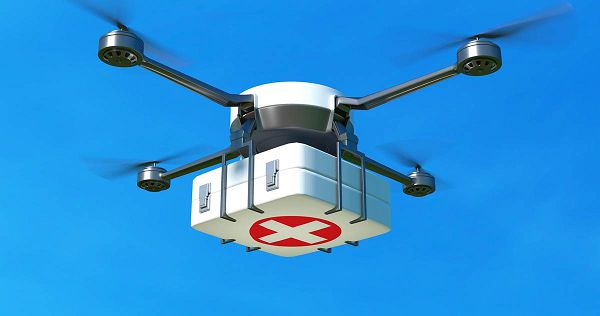
Medical drone project needs our support
A healthy nation is a wealthy nation. This common adage is often taken for granted, but it is a fact.
It is against this background that many governments, as part of their responsibilities to the people they govern, often invest huge sums of taxpayers’ money to support the healthcare system in their countries.
In Ghana, many efforts have been made to ensure that people get easy access to medical care with the construction of all kinds of medical facilities across the country.
For instance, more than 10 years ago, the government, in its quest to make healthcare delivery more affordable, introduced the National Health Insurance Scheme (NHIS).
Although the scheme has had its challenges, many who have benefitted and still benefit from it can attest to its positives.
It is only expected that in the nearest future, the various anomalies that hinder the growth of the scheme will be addressed.
In the second week of December last year, Parliament approved, after a strenuous effort, the drones for medical delivery agreement after three failed attempts.
It was the avowed resolve of the government to ensure that at least majority of the people in need of essential medical supplies in all parts of the country have access to their medications or blood to save lives.
The Ghana Health Service (GHS) had introduced the deal to help deliver blood and essential medicines across the country, especially to rural communities.
The GHS had held that the deal was extremely useful and called on all Ghanaians to fully support the project.
Less than four months from now Ghana will be the second country on the continent, after Rwanda, to use unmanned aerial vehicles (drones) for the distribution of essential emergency medical supplies to various health facilities across the country.
According to reports, the company to undertake the project, Zipline, is busily constructing the base for the flights and a distribution centre at Dominako, five kilometres away from Suhum in the Eastern Region.
The project, the first of four to be constructed in the country, will be expected to serve areas within the Eastern Region, including the Afram Plains, the Volta Region and parts of the Greater Accra and Ashanti regions.
The Daily Graphic associates itself with the project because of the many benefits and the relief it will bring to the many who, without that, will die in the hospitals because they do not have essential emergency medical drugs and blood.
We have closely monitored the discourse around the project and we appreciate the divergent positions held by civil society groups, politicians and medical practitioners across the country.
However, we wish to indicate that based on our observation of the project as being implemented in Kigali, Rwanda, there is no doubt that Ghana too will succeed in a bigger form.
We are also happy to note that just as was done in Rwanda, Ghanaians have been trained to be the pilots for the project and, in fact, the managers of the entire operations.
We are also aware that in Kigali, local technicians are being made to build batteries for the drones which should be able to last more than two hours in a flight.
It should not be lost on us that the services to be delivered may save the lives of distant relatives, friends or children in need of such services.
What we can add is for the government to ensure that the cost of the project is within the limit to enable more areas to benefit from this laudable initiative meant to change the face of the country’s medical system.
